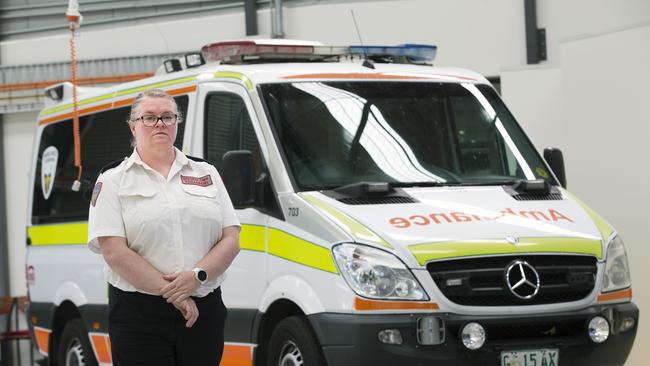Mental health support for emergency services needs reviewing, senate report says
A Senate report is recommending sweeping changes to provide more support for first responders, following an appeal by Tassie ambo.

Tasmania
Don't miss out on the headlines from Tasmania. Followed categories will be added to My News.
WHEN Tasmanian paramedic Simone Haigh lost a friend and colleague to suicide a few years ago she vowed to fight for better support for emergency workers.
Now a Senate report is recommending sweeping changes to provide more support for first responders.
“My initial reason for starting this was the suicide of one of my friends,” Ms Haigh said.
“I had wanted to do more to help him. We also have retired staff who take their own lives and there have been multiple other attempts.”
Ms Haigh’s push led to the Senate inquiry, which released its report earlier this month titled “The people behind 000: mental health of our first responders”.
MORE NEWS:
MP SEX ACCUSER TO MAKE STATEMENT TO POLICE
CITY DEAL LABELLED DUD DEAL BY LABOR
INTERNATIONAL FLIGHTS PART OF CITY DEAL
KINGBOROUGH COUNCIL PROPOSES TO WIND BACK RATE RISES
The report details how on December 9 last year an AFP officer took his own life, the fourth to do so in 18 months.
This was almost 10 years after Constable Morgan James Hill also took his own life after suffering from post-traumatic stress disorder.
“These two tragedies reflect how little has changed over the past decade for first responders experiencing mental health conditions,” the report read.
“Unlike most other professions, first responders’ jobs are known to discernibly increase the risk of mental illness — no plausible contrary argument has been made.”
Health and Community Services Union Tasmania acting state secretary Robbie Moore said the significance of the report was huge, and the Government needed to implement the full range of report recommendations.
MORE NEWS:
IT’S NOT OVER YET, MORE OF SUMMER STILL TO COME
GOVERNOR TAKING CANCER TREATMENT IN STRIDE
EDITORIAL: CITY DEAL FALLS SHORT
“As the employer, the Government should be taking responsibility and working to address the issue.”
“The people behind 000: mental health of our first responders” has 14 recommendations, including a national approach to collect comprehensive data on the occurrence of mental health injuries and suicide in first responders both past and present, to provide early intervention support services and to provide ongoing and adequate mental health support services to all first responders who are no longer employees.
“We have three or four times the rate of post-traumatic stress injury than the general public,” Ms Haigh said.
“But there’s no set in stone number of suicide rates of emergency services because there’s no database that collects that.”
For 24/7 crisis support, contact Lifeline on 131 114, SCBS on 1300 659 467 or visit headspace.org.au


